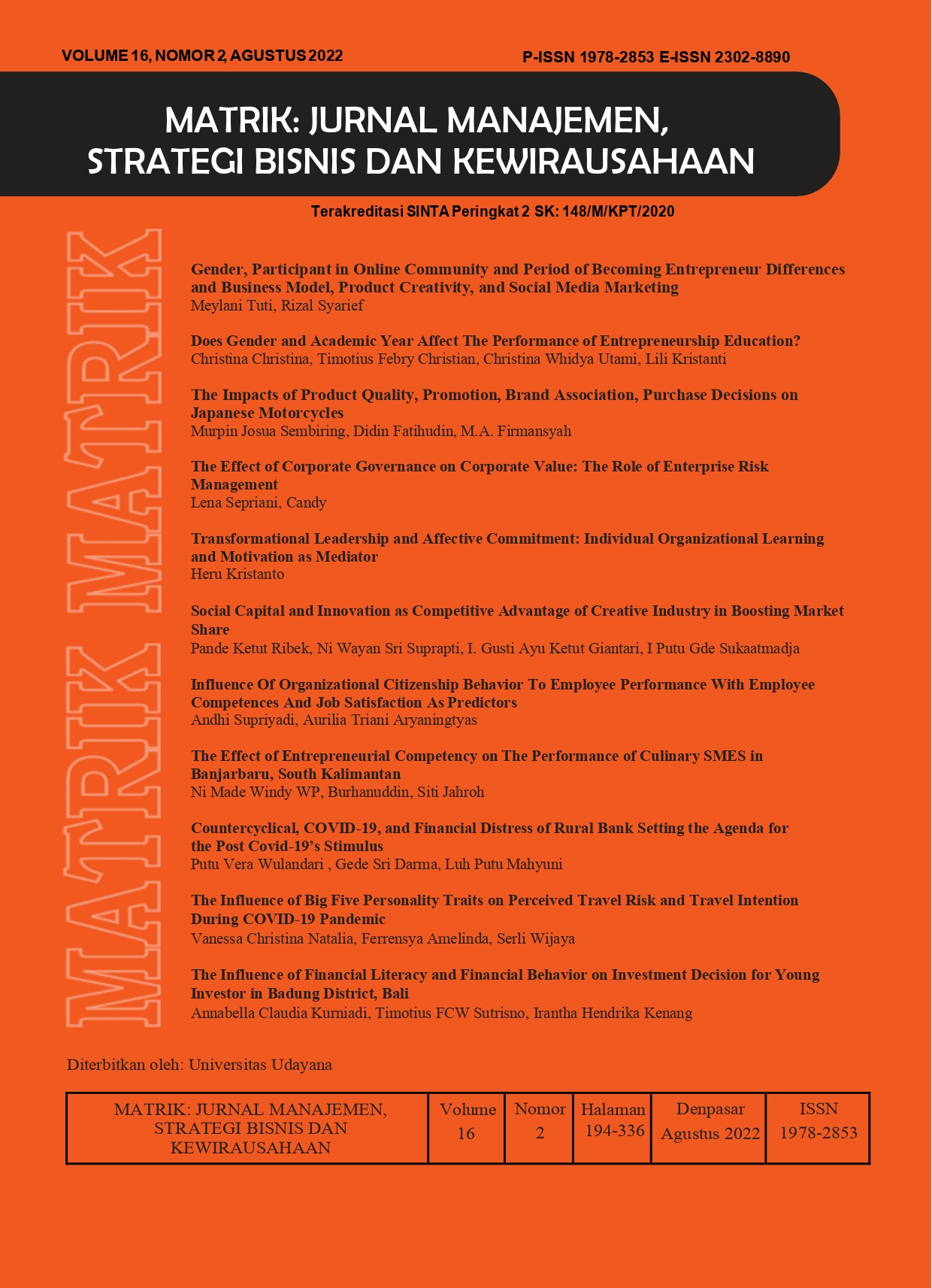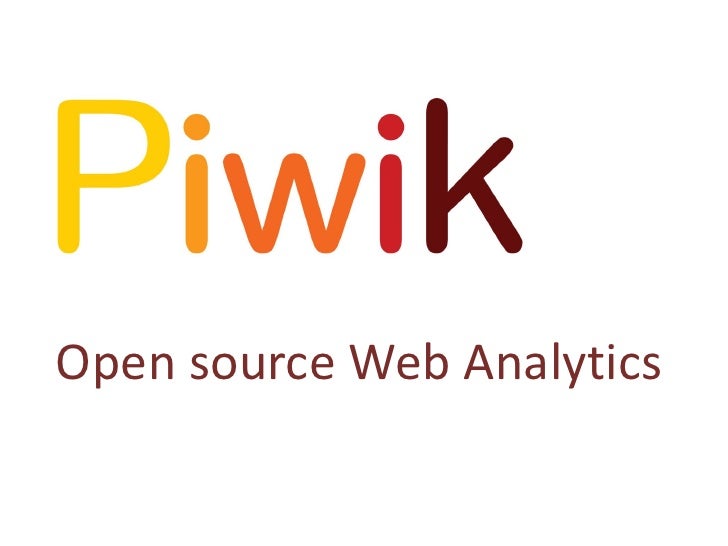Gender Based Differences in Business Model, Online Community Participation and Period of Becoming Entrepreneur in Relation to Product Creativity and Social Marketing
Abstract
Becoming an entrepreneur is one of the opportunities for today's young generation, especially during a pandemic that causes them to lose their jobs. Efforts made by the government to facilitate the emergence of an entrepreneurial spirit are in the form of financial assistance and coaching needed by new entrepreneurs. This study observed three variables that can improve entrepreneurs' business performance: business models, marketing through social media, and product creativity. The three variables are distinguished by gender, membership in online communities, and period of being a food entrepreneur. The study results indicate differences between men and women in the business model and product creativity variables and their online food entrepreneurship community participation. However, there is no difference between men and women as community members on social media marketing.
Downloads
References
Amabile, T. M., & Pratt, M. G. (2016). The dynamic componential model of creativity and innovation in organizations: Making progress, making meaning. Research in Organizational Behavior, 36, 157–183. https://doi.org/10.1016/j.riob.2016.10.001
Amit, R., & Zott, C. (2012). creating-value-through-business-model-innovation Amit and Zottt, (53310).
Cedric Herring. (2009). Does Diversity Pay? American Sociological Review, 74, 208–224.
Chen, C. J., & Hung, S. W. (2010). To give or to receive? Factors influencing members’ knowledge sharing and community promotion in professional virtual communities. Information and Management, 47(4), 226–236. https://doi.org/10.1016/j.im.2010.03.001
Frow, P., & Payne, A. (2011). A stakeholder perspective of the value proposition concept. European Journal of Marketing, 45(1), 223–240. https://doi.org/10.1108/03090561111095676
Grosser, K., & Moon, J. (2019). CSR and Feminist Organization Studies: Towards an Integrated Theorization for the Analysis of Gender Issues. Journal of Business Ethics, 155(2), 321–342. https://doi.org/10.1007/s10551-017-3510-x
Gunelius, S. (2011a). 30 Minute Social Media. McGraw-Hill.
Gunelius, S. (2011b). Social Media Marketing. New York: McGraw-Hill.
Harrison, R., Leitch, C., & Mcadam, M. (2015). Breaking Glass: Toward a Gendered Analysis of Entrepreneurial Leadership. Journal of Small Business Management, 53(3), 693–713. https://doi.org/10.1111/jsbm.12180
Hong, J., Song, T. H., & Yoo, S. (2013). Paths to success: How do market orientation and entrepreneurship orientation produce new product success. Journal of Product Innovation Management, 30(1), 44–55. https://doi.org/10.1111/j.1540-5885.2012.00985.x
Horn, D., & Salvendy, G. (2006). Product creativity: Conceptual model, measurement, and characteristics. Theoretical Issues in Ergonomics Science, 7(4), 395–412. https://doi.org/10.1080/14639220500078195
Jadiyappa, N., Jyothi, P., Sireesha, B., & Hickman, L. E. (2019). CEO gender, firm performance and agency costs: evidence from India. Journal of Economic Studies, 46(2), 482–495. https://doi.org/10.1108/JES-08-2017-0238
Kang, M. Y., & Park, B. (2018). Sustainable corporate social media marketing based on message structural features: Firm size plays a significant role as a moderator. Sustainability (Switzerland), 10(4). https://doi.org/10.3390/su10041167
Kelley, J., Evans, M. D. R., Lowman, J., & Lykes, V. (2017). Group-mean-centering independent variables in multi-level models is dangerous. Quality and Quantity, 51(1), 261–283. https://doi.org/10.1007/s11135-015-0304-z
Lopez-Nicolas, C., Nikou, S., Molina-Castillo, F. J., & Bouwman, H. (2020). Gender differences and business model experimentation in European SMEs. Journal of Business and Industrial Marketing, 35(7), 1205–1219. https://doi.org/10.1108/JBIM-05-2019-0194
Morris, M., Schindehutte, M., & Allen, J. (2005). The entrepreneur’s business model: Toward a unified perspective. Journal of Business Research, 58(6), 726–735. https://doi.org/10.1016/j.jbusres.2003.11.001
Osterwalder, Alexander & Pigneur, Y. (2018). Business Model Generation. (Y. Masda, Ed.). New Jersey: PT Elex Media Komputindo.
Osterwalder, A., Pigneur, Y., & Tucci, C. L. (2005). Clarifying Business Models: Origins, Present, and Future of the Concept. Communications of the Association for Information Systems, 16(May). https://doi.org/10.17705/1cais.01601
Reynolds, P. D., & Curtin, R. T. (2011). New Business Creation. New York: Springer US.
Runco, M. A., & Jaeger, G. J. (2012). The Standard Definition of Creativity. Creativity Research Journal, 24(1), 92–96. https://doi.org/10.1080/10400419.2012.650092
Ryan, D., & Jones, C. (2009). Understanding Digital Marketing: Marketing Strategies for Engaging the Digital Generation. United Kingdom: Kogan Page Limited.
Sharafizad, J., & Coetzer, A. (2017). Women business owners’ start-up motivations and network structure. Journal of Management and Organization, 23(2), 206–223. https://doi.org/10.1017/jmo.2016.51
Simerly, M. C., & Gan, H. (2017). CEO Characteristics and the Decision to Include Non-Financial Performance Measures in Compensation Contracts. American Journal of Management, 17(4), 81.
Stewart, D. W., & Zhao, Q. (2000). Internet marketing, business models, and public policy. Journal of Public Policy and Marketing, 19(2), 287–296. https://doi.org/10.1509/jppm.19.2.287.17125
Tuten, T. L. (2008). Advertising 2.0: Social Media Marketing in a Web 2.0 World. California: Greenwood Publishing Group.
Weinberg, T. (2009). The New Community Rules: Marketing on the Social Web. USA: O’Reilly.
 This work is licensed under a Creative Commons Attribution-ShareAlike 4.0 International License.
This work is licensed under a Creative Commons Attribution-ShareAlike 4.0 International License.

















